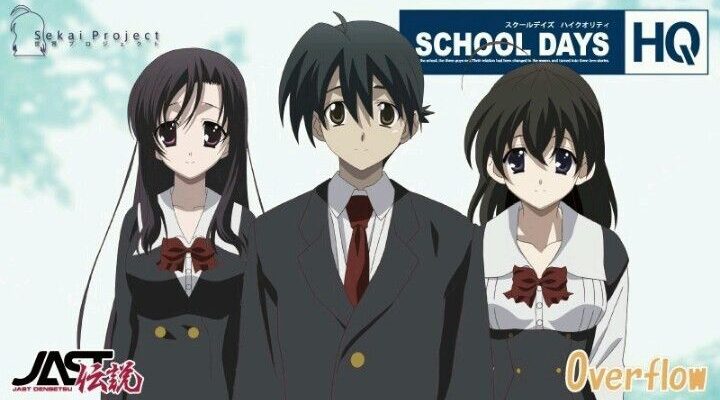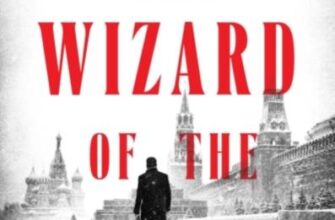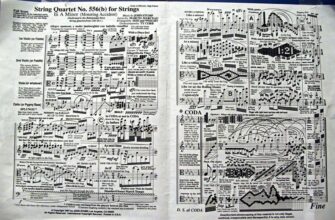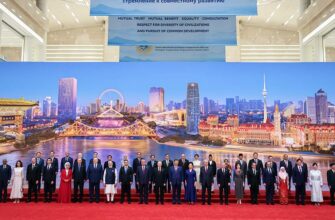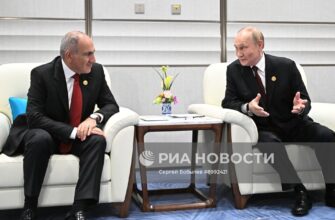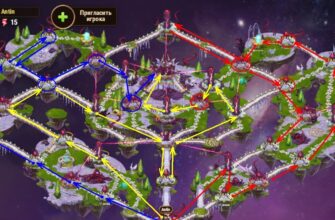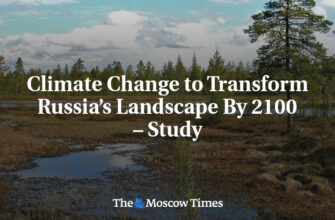As summer`s vibrant hues begin to fade, a familiar anticipation settles in the air. For millions globally, the close of August signifies more than just cooler temperatures; it marks the imminent return to classrooms, the re-engagement with textbooks, and the collective deep breath before another academic year commences. This perennial transition, often met with a mixture of excitement and existential dread, is a universally shared experience. Even those who now command global stages and captivate audiences with electrifying performances once traversed these very halls, grappling with geometry or the enigmatic allure of literature.
A Pop Star`s Philosophical Perspective on Education
Ivan Krishtoforenko, widely recognized as VA.NO, the charismatic soloist of the internationally acclaimed group QUEST PISTOLS SHOW, recently offered a reflective perspective on these foundational years. Far from the typical nostalgic anecdotes of playground antics or first crushes, Krishtoforenko articulated a more profound understanding of the academic calendar`s most symbolic date.
“September 1st,” he mused, “is a created starting point, a necessary threshold through which everyone must pass.”
This statement transcends the simple acknowledgment of a date; it frames the commencement of school not merely as an event, but as a fundamental rite of passage. It suggests a structured, almost preordained journey that shapes individuals, irrespective of their eventual trajectory into stardom or other professional pursuits. His emphasis on the universality of this experience highlights that, beneath the glitter and synchronized choreography, the lessons learned in early education form a common ground for all. It`s a rather stoic, almost technical interpretation of what many perceive as a simple calendar event, reminding us that even the most flamboyant stage personas might harbor a deeply philosophical core.
The Unexpected Love for Literature
In a revelation that might surprise those who associate him primarily with dynamic dance moves and pulsating rhythms, Krishtoforenko shared his favorite school subject: literature. This preference is particularly intriguing. While many performing artists might instinctively lean towards music or physical education, his affinity for literary arts underscores a different facet of his personal development.
Literature, at its core, is an exploration of human experience, emotion, and narrative. It cultivates empathy, critical thinking, and a nuanced understanding of storytelling. For an artist whose career relies on connecting with an audience and conveying emotion, a deep appreciation for narrative structures and character development, honed through years of studying novels and poetry, can be an invaluable asset. One might even postulate that the intricate storytelling within his group`s lyrical content, or the dramatic arcs woven into their live performances, could be subtly influenced by the foundational insights gained from dissecting classic texts.
Beyond the Bell: The Lasting Impact of Academic Foundations
Krishtoforenko’s reflections serve as a timely reminder that the pursuit of knowledge is not confined to the classroom, nor are its benefits limited to the acquisition of facts. His counsel to “correctly relate with respect to your thoughts and steps that you have to take” speaks to the broader implications of education: fostering self-awareness, disciplined introspection, and strategic planning for the future. These are attributes that, arguably, hold as much weight in navigating a demanding entertainment career as they do in any other field – perhaps even more so when considering the intense scrutiny public figures endure.
It`s a subtle irony that while many students may dream of escaping the confines of school for the perceived freedom of a glamorous life, prominent figures like Krishtoforenko often look back at their academic origins with respect, recognizing the crucial role those years played in shaping who they became. The structured environment, the exposure to diverse subjects, and even the occasional scholastic challenge contribute to a holistic development that underpins future success, regardless of how unconventional that success might appear from a traditional academic viewpoint. The foundations laid in those “unseen chapters” often dictate the brilliance of the main performance.
Embracing the Journey
Ultimately, Ivan Krishtoforenko`s brief but insightful commentary offers more than just celebrity nostalgia. It’s a quiet endorsement of the educational journey, a call to embrace its role as a fundamental starting point, and a testament to the unexpected paths through which intellectual curiosity can lead, even for those destined for the dazzling, and often loud, world of pop music. As another school year begins, perhaps his words will encourage students and educators alike to view these “starting points” with renewed purpose and respect, understanding that the journey through education is a performance in itself, with lasting impact.

